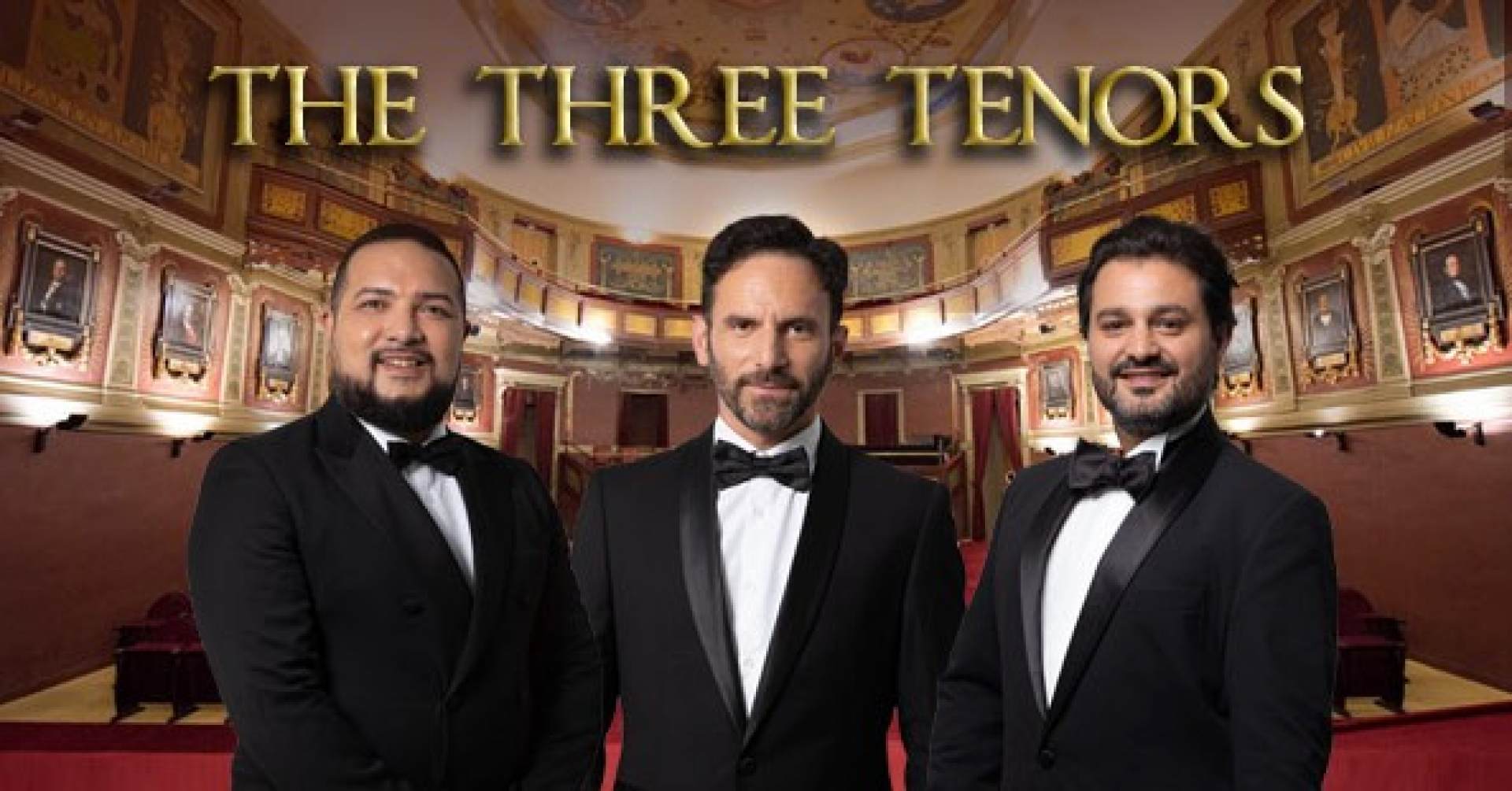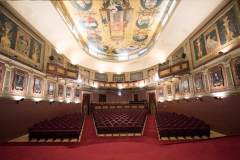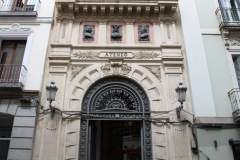The Three Tenors in Madrid
November 2025 | ||||||
|---|---|---|---|---|---|---|
Mo | Tu | We | Th | Fr | Sa | Su |
The enticing voices of the three tenors Francesco Fortes, Alessandro Fortunato, and Stefano Sorrentino, accompanied by strings and piano, offer the audience a spectacular journey through the masterpieces of Italian opera, timeless Neapolitan songs, and the passionate melodies of Spanish tradition. The concert opens with some of the most iconic opera arias and classical pieces from Carmen, Tosca, Turandot and Rigoletto followed in the second part by unforgettable pieces of all time like ’O sole mio, Torna a Surriento, Bésame mucho and Historia de un amor, in an overwhelming crescendo of emotion and passion.
The first part the three tenors will bring on stage the eternal emotion of the greatest opera ever, while the second part ignites the spectators' souls with the warmth, rhythm and intensity of the most beloved masterpieces from all over the world.
A varied, dynamic and unforgettable concert.
As a frame to the event a wonderful location, the splendid Cátedra Mayor of Ateneo de Madrid.
Tickets (not numbered seats)
Approximate duration (min.): 80
OPENING TIME - h. 8.00 pm
START TIME - h. 8.30 pm
END TIME - h. 9.50 pm
BREAK - 5 minutes between the two acts
USEFUL INFORMATION
- *Not Refundable tickets: tickets for The Three Tenors concert in Madrid are not refundable for any reasons.
- In order to ensure you the best seat in your category, we recommend you arrive at the “Opera e Lirica” concerts at least
30 minutes before starting time.
- No Dress Code Required.
TOILETTE - yes
AIR CONDITIONING - yes
DISABLED ACCESS - yes
Program and cast
Tenors: Francesco Fortes, Alessandro Fortunato y Stefano Sorrentino
Strings and piano
PROGRAM
First Part
Georges Bizet: Habanera Carmen
Gaetano Donizetti: Una furtiva lagrima L’Elisir d’amore
Giacomo Puccini: E lucevan le stelle Tosca
Ruggero Leoncavallo: Mattinata
Astor Piazzolla - Ave Maria
Giuseppe Verdi: La donna è mobile Rigoletto
Augustin Lara - Granada
Giacomo Puccini: Nessun dorma Turandot
Second Part
MEDLEY DE CANCIONES NAPOLITANAS - Arreglo de Elvin Dhimitri
Ernesto De Curtis, Torna a Surriento
Enrico Cannio, 'O surdato 'nnammurato
Domenico Modugno, Nel blu dipinto di blu
Consuelo Velázquez, Besame mucho
Andrea Bocelli, Con te partirò
Carlos Eleta Almarán, Historia de un amor
Lucio Dalla, Caruso
Alfredo Le Pera, Por una cabeza
Eduardo di Capua, ‘O Sole mio
Subject to change.
Ateneo de Madrid
The Ateneo of Madrid is the most important private cultural institution in contemporary Spanish history, dedicated to the dissemination of sciences, arts and letters since 1820. The architects Enrique Fort and Luis Landecho were reponsible for its construction. The narrow façade, which bears three medallions with the reliefs of Alfonso X the Wise, Cervantes and Velázquez, does not reflect the spaciousness of the interior of the building. Its extensive facilities include the reading rooms, the lecture hall and the splendid neo-Grecian auditorium, designed by Arturo Mélida. The Athenaeum is an institution with a rich history and played an important part in the cultural life of Spain during the 19th and early 20th centuries, as a forum for discussion and a platform for the free expression of ideas. The hall known as the "cacharrería" (junk room) hosted ongoing heated discussions by writers and artists which lasted from three o'clock in the afternoon until well into the night. Its illustrious members have included Mesonero Romanos, Castelar, Cánovas del Castillo, Unamuno, Valle-Inclán and Manuel Azaña. The collection of portraits of some of these personalities, with works by Rosales and Madrazo, is of considerable interest but even more important is the priceless collection of books in its ever-growing library, which contains over 200,000 volumes and, as a unique feature, remains open to the public until after midnight.
The first violin Elvin Dhimitri, strings and harpsichord of “Opera e Lirica” will offer the audience a spectacular concert of “The Four Seasons by Vivaldi in Madrid”, one of the masterpieces of the Italian Baroque.

 EN
EN DE
DE IT
IT FR
FR ES
ES RU
RU JP
JP RO
RO
 Seating plan
Seating plan 